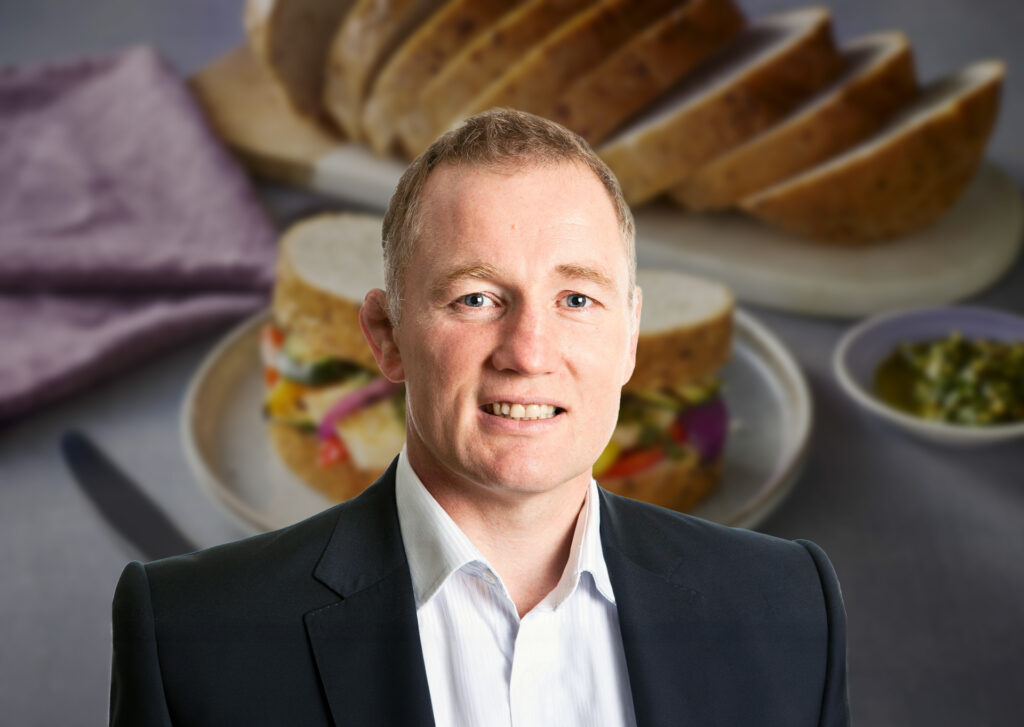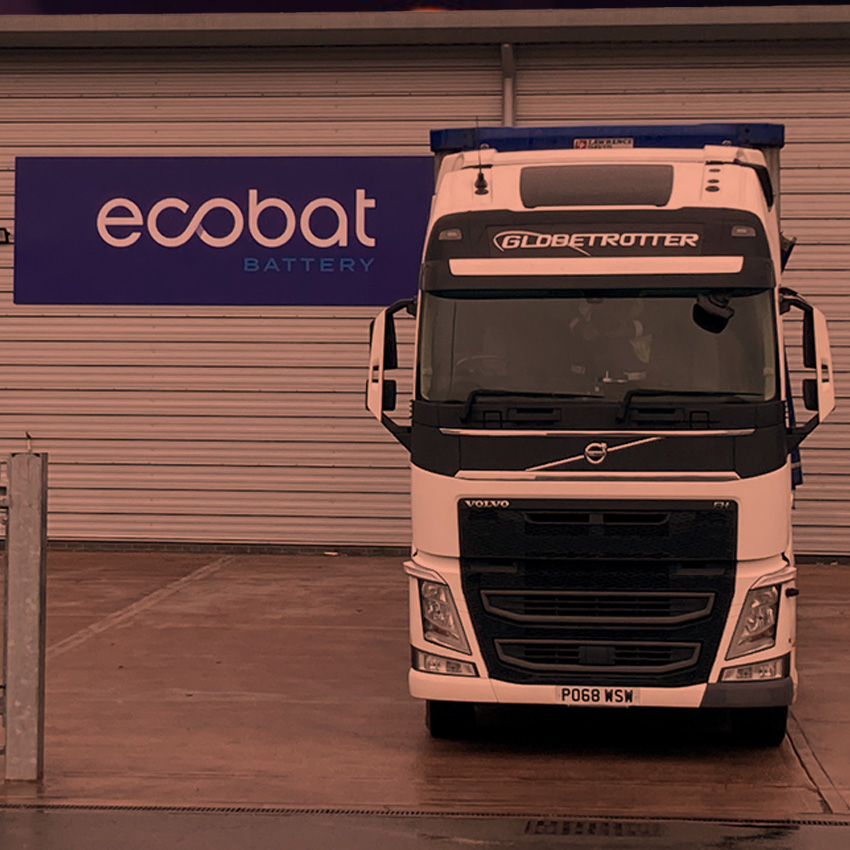January 22, 2024
Q&A with Jon Jenkins, CEO of Hovis
In the latest installment of our sector insights series, we present an in-depth conversation with Jon Jenkins, CEO of Hovis Ltd, part of the Endless portfolio. Jon, with over 36 years of experience in the consumer goods sector, brings unparalleled expertise to one of Britain’s most iconic bakery brands. This interview sheds light on Jon’s path to Hovis, the lessons learned from his tenure in the dairy industry, and his strategies for navigating the rapidly evolving food and beverage landscape.

Please tell us a bit about your background and what led you to work in the bakery sector? And in particular, why did you decide to join Hovis?
I’ve spent my whole career working in the consumer goods industry. I love the challenge of getting consumers to choose your brand and products in a store stocking 30,000 items. it keeps your feet on the ground but always encourages you to do more.
Having worked across many food and drink categories during my 36 years in the industry, I have been drawn towards the bakery sector. It’s right at the heart of the grocery industry, being the key reason people go to the shops on a daily basis, and is pretty much in every household in the UK. It also requires great teamwork to be a successful operator in the sector, as baking 10 million loaves a week and delivering them to every postcode in the country requires a huge amount of skill, commitment and coordination. I have a background in team sports, so I really enjoy this aspect of the job.
When I was approached about joining Hovis, it was a very easy decision. Hovis is one of the best brands in the country, much loved with a rich heritage and is famous for making the best and most wholesome bread. It is also about as British as the royal family and very much part of the fabric of life in the UK. Helping the team at Hovis to unlock all the potential in the bread and the business is something I am really delighted to be leading.
Can you share some key takeaways or lessons from your experience in the dairy industry that you find applicable to the bakery industry?
Having previously run the Muller Dairy operations in the UK, a lot of the challenges I faced in the liquid milk are also present in bread and bakery. From a consumer perspective, bread and milk are the two most consumed food and drink items at home, so small differences in quality really matter. Sourcing the best ingredients and really focusing on having the best quality product is critical.
Despite being hugely popular, as a nation, we are consuming a little bit less bread and milk every year, so it’s also important to innovate and give options to consumers to trade up to added value products as well as to develop new ranges in sectors with more growth potential. With bread and milk both being grocery staples sold at affordable prices for consumers, running an efficient supply chain is a key foundation for success.
The majority of supermarkets still take their bread and milk deliveries directly from the manufacturing sites rather than through their own distribution networks as the products are bulky and have a short shelf life, so logistics capability and an understanding of how to optimist this whilst maintaining outstanding customer service can be a real competitive advantage. This is true for both Muller and Hovis, whose supply chain resilience through Brexit, Covid and the war in Ukraine has been a genuine differentiator that has supported great outcomes for their customers during the most challenging of times.
The food industry is subject to changing consumer preferences and dietary trends. How do you stay ahead of these trends, and what steps have you taken to ensure that Hovis remains relevant in today’s market?
The Hovis business started life with an insight into how to better satisfy customers with healthier products, adding wheatgerm to flour to improve the diet of customers the bakers Hovis supplied flour to in the late 1800’s.
This focus on delighting consumers with better products has remained a constant focus of the business and is why we remain a market leader, with our Hovis Seed Sensations range being one of the best examples of the added value that comes from outstanding product development.
We are continuing to adapt to changing consumer trends and tastes and continue to focus on innovation, with the Hovis 1886 range of craft and artisan bakery products approaching £20m of sales in just 3 years.
Sustainability and environmental concerns are increasingly important. What steps is Hovis taking to address this?
Doing the right thing from a sustainability and environmental perspective is very much front and centre when running a large-scale bakery operation and a brand like Hovis. Key operational costs are gas and electricity to fuel our ovens and equipment in our bakeries and Mill, so we are always looking to find more energy-efficient manufacturing solutions.
Daily Deliveries mean we use diesel vehicles, which will transition to EVs for local deliveries while also looking at more fuel-efficient and alternative fuelled options for longer-distance HGV requirements. All Hovis sliced break packaging is 100% recyclable, with 30% recycled content, and through a series of initiatives over the last two years, we have removed over 1000 tonnes of virgin plastic from our supply chain.
We are constantly looking at ways to use less carbon in our supply chain, whether that be through finding new wheat variants that require less fertiliser or working with our customers to make deliveries more efficient and reduce food miles across the country. We’ve made great strides in eliminating food waste as we’ve supported organisation like FareShare to get surplus production to families in need of a helping hand whilst also introducing smaller pack sizes and extending shelf life so consumers waste less at home. As technological developments accelerate we will keep adapting our operations to best meet the requirements for net zero while remaining cost effective.
In a rapid evolving business landscape, what makes Hovis unique and what strategies do you have in place to ensure Hovis remains competitive and continues to grow in the future?
The bakery sector remains fiercely competitive, so it is really important that Hovis continues to play to its strengths to achieve its full potential in the future. Technically, we have a deep knowledge and expertise in milling and baking, which has allowed us to lead the market in quality and taste.
Tasty Wholemeal, Seed Sensations, and Granary loaf are all examples of superior products leading to market leadership in key bread market sectors. Continuing to invest in market-leading quality and technical expertise will grow and sustain our core bread business and allow us to innovate in growing bakery segments, such as sandwich alternatives and morning goods.
Conclusion
Jon Jenkins’ perspective underscores the importance of innovation, quality, and sustainability in maintaining a competitive edge in the food and beverage sector. His leadership at Hovis highlights a strategic approach to overcoming industry challenges and leveraging opportunities for growth. This conversation is a valuable addition to our series, offering actionable insights for businesses aiming to adapt and succeed in a changing market environment. Stay tuned for more expert insights into various sectors.


